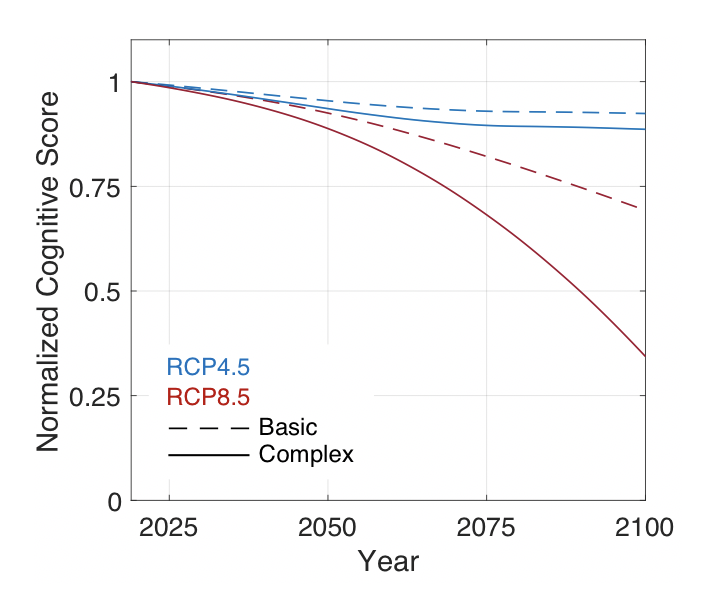Most of the impacts of our unprecedented CO2 emissions are brokered by warming, but not all of & #39;em—think ocean acidification.
Will higher CO2 have a direct impact on HUMANS?
Paper tour, with @ShellyMBoulder & @AnnaSchapiro…
Will higher CO2 have a direct impact on HUMANS?
Paper tour, with @ShellyMBoulder & @AnnaSchapiro…
Today in @theAGU GeoHealth...
Summary: https://cires.colorado.edu/news/continued-co2-emissions-will-impair-cognition
Full">https://cires.colorado.edu/news/cont... paper (open access): https://doi.org/10.1029/2019GH000237
https://doi.org/10.1029/2... href="https://twitter.com/CUBoulder">@CUBoulder @CIRESnews @CUBoulderATOC @ColoradoSPH @CUEngineering @Penn @SusanAnenberg @GabeFilippelli #GeoHealth
Summary: https://cires.colorado.edu/news/continued-co2-emissions-will-impair-cognition
Full">https://cires.colorado.edu/news/cont... paper (open access): https://doi.org/10.1029/2019GH000237
Introducing an interdisciplinary team: @ShellyMBoulder is an air quality & environmental engineer @CUEngineering, and @AnnaSchapiro is a cognitive neuroscientist @Penn. I learned a LOT from Drs. Miller and Schapiro. That said, the news is a bit sobering.
Actually, this idea came after sifting through some literature due to personal concerns I held about our neighborhood elementary school not having A/C or even sufficient ventilation. One thing just led to another.
So, let’s start with global “background” CO2 levels. In 2019 we saw a record high of 411 ppm. Per @IPCC_CH, our children could witness a doubling of that concentration, depending on our emissions & mitigation strategies deployed today. There’s no question—it’s going to go up.
Very few people hang out atop Mauna Loa, i.e the @Keeling_curve representing the global troposphere. So CO2 levels are actually a bit higher where most people live—in urban & suburban areas. Literature suggests a range from 20 to 150 ppm higher in urban vs. nearby rural areas.
Let’s head inside. Here, CO2 is always higher—usually by a lot! Depends on two things: room ventilation and “generation” (respiration by occupants). A human generates ~0.01 L/s of CO2, depending on age, sex, body stats, and level of physical activity. Neat graph of this below…
The steady–state solution for indoor CO2 concentration as a function of outdoor CO2 is easy to model when you know generation (G) and ventilation (Q). You approach 1,000 ppm pretty quick for occupied indoor spaces, especially ones in urban environments.
This can easily be confirmed by actually measuring CO2 inside. Here’s one recent example of an office environment, with ventilated and non–ventilated cases. 4,000 ppm! Amazing paper, BTW. They also measured the higher CO2 in the bloodstream and other physiological things.
Could I resist? Nope! I acquired some CO2 sensors and have subjected myself and my family to this little obsession… sometimes while they slept!
I’ve tweeted about this in the past…
https://twitter.com/OceansClimateCU/status/1123219260598210560
https://twitter.com/OceansCli... href=" https://twitter.com/OceansClimateCU/status/1123930180328861697
https://twitter.com/OceansCli... href=" https://twitter.com/OceansClimateCU/status/1249435640560672769
https://twitter.com/OceansCli... href=" https://twitter.com/OceansClimateCU/status/1251632660667002886">https://twitter.com/OceansCli...
I’ve tweeted about this in the past…
https://twitter.com/OceansClimateCU/status/1123219260598210560
Here’s the crux, and where the most work still needs to be done. This fascinating study by @j_g_allen of @HarvardChanSPH et al. is one of several showing impacts of elevated CO2 on cognition… and in the realm of 500–1500 ppm! Some studies corroborate; some are inconclusive.
Let’s recap with our flowchart, which also happens to be a roadmap for all the modeling, observation and experimentation that needs to be done or refined. This is how we can constrain projections of this possibly critical impact on humans that cares little of climate sensitivity.
In our paper, we offer a demo using such an end–to–end model framework. For inputs, we take RCP4.5 & (your fav!) RCP8.5 background levels, bump & #39;em up by 66 ppm for urban (from a 5–yr study in Baltimore), then model indoor using G & Q appropriate for something like a K-8 school.
Still with me?
Next, we pass those future indoor CO2 time series through these https://abs.twimg.com/emoji/v2/... draggable="false" alt="👇" title="Down pointing backhand index" aria-label="Emoji: Down pointing backhand index">
https://abs.twimg.com/emoji/v2/... draggable="false" alt="👇" title="Down pointing backhand index" aria-label="Emoji: Down pointing backhand index"> https://abs.twimg.com/emoji/v2/... draggable="false" alt="👇" title="Down pointing backhand index" aria-label="Emoji: Down pointing backhand index"> empirical models of cognitive score as a function of CO2. Look familiar? They’re approximations of the data from @j_g_allen et al. for the two categories circled a few tweets ago in this thread.
https://abs.twimg.com/emoji/v2/... draggable="false" alt="👇" title="Down pointing backhand index" aria-label="Emoji: Down pointing backhand index"> empirical models of cognitive score as a function of CO2. Look familiar? They’re approximations of the data from @j_g_allen et al. for the two categories circled a few tweets ago in this thread.
Next, we pass those future indoor CO2 time series through these
And here’s the answer we get. ~10% reduction in cognitive function for RCP4.5. The projections are severe for RCP8.5: ~25% for ‘basic’ and over 50% for ‘complex.’ Obviously, the latter hinges on the nonlinearity in the response of ‘complex’ cognitive function beyond 1,000 ppm.

 Read on Twitter
Read on Twitter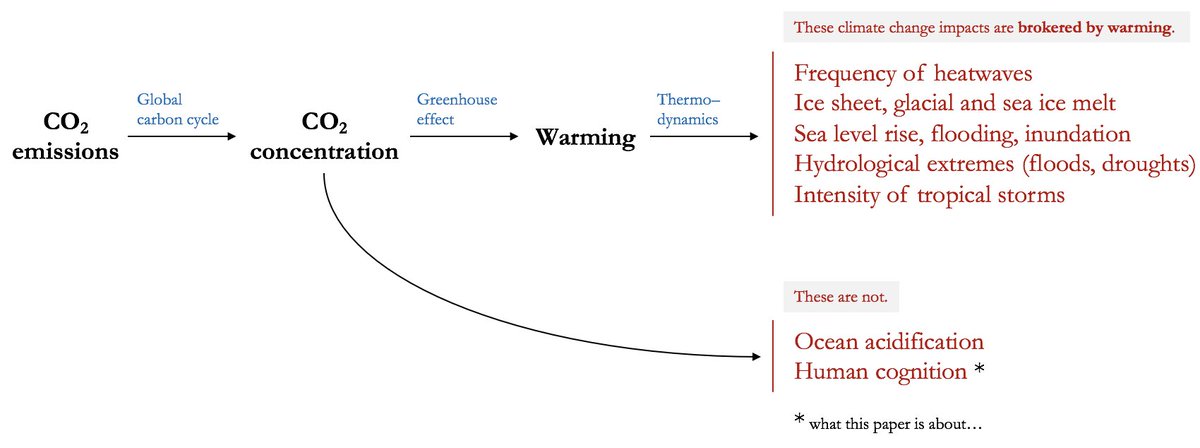
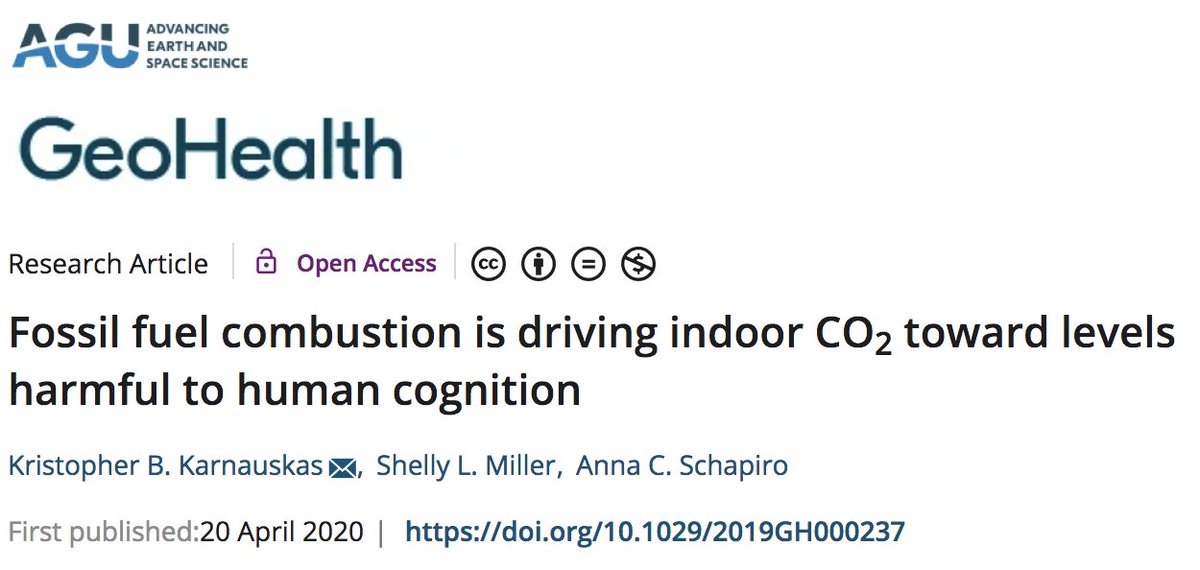 @CUBoulder @CIRESnews @CUBoulderATOC @ColoradoSPH @CUEngineering @Penn @SusanAnenberg @GabeFilippelli #GeoHealth" title="Today in @theAGU GeoHealth...Summary: https://cires.colorado.edu/news/cont... paper (open access): https://doi.org/10.1029/2... href="https://twitter.com/CUBoulder">@CUBoulder @CIRESnews @CUBoulderATOC @ColoradoSPH @CUEngineering @Penn @SusanAnenberg @GabeFilippelli #GeoHealth" class="img-responsive" style="max-width:100%;"/>
@CUBoulder @CIRESnews @CUBoulderATOC @ColoradoSPH @CUEngineering @Penn @SusanAnenberg @GabeFilippelli #GeoHealth" title="Today in @theAGU GeoHealth...Summary: https://cires.colorado.edu/news/cont... paper (open access): https://doi.org/10.1029/2... href="https://twitter.com/CUBoulder">@CUBoulder @CIRESnews @CUBoulderATOC @ColoradoSPH @CUEngineering @Penn @SusanAnenberg @GabeFilippelli #GeoHealth" class="img-responsive" style="max-width:100%;"/>
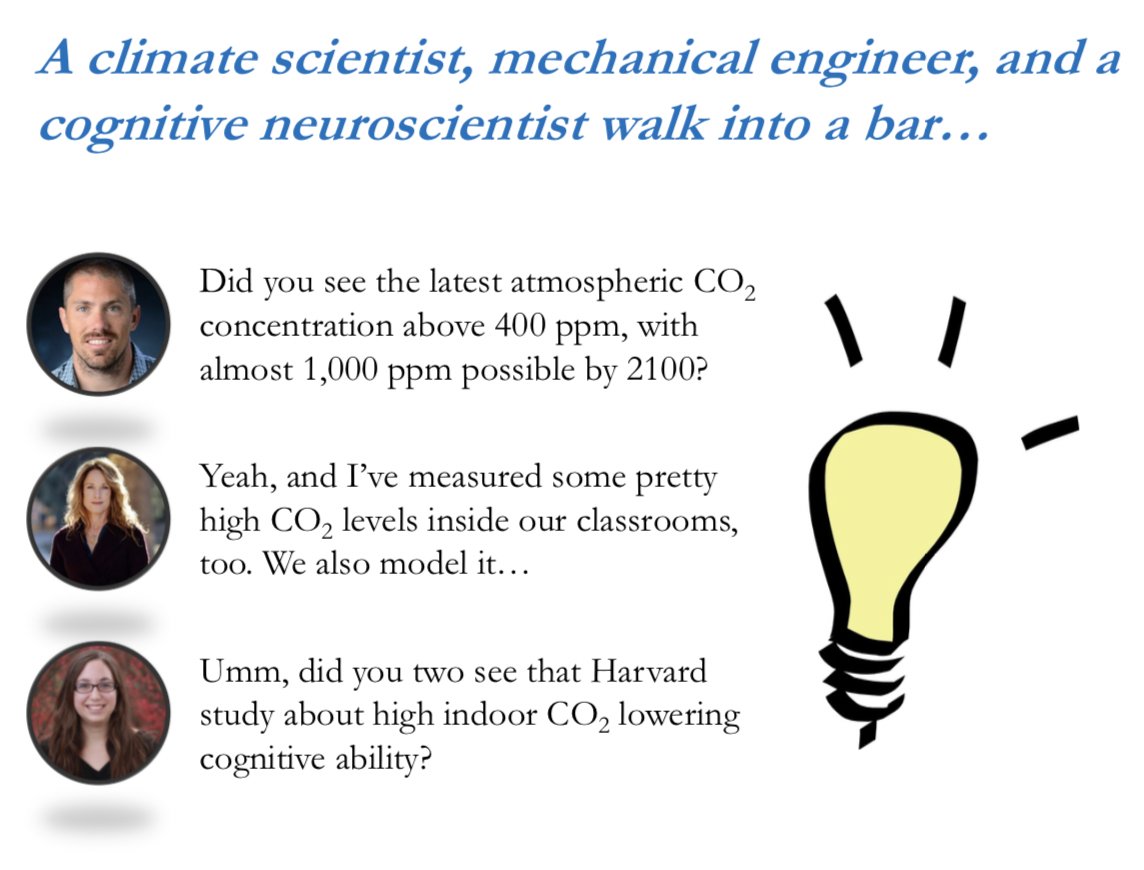

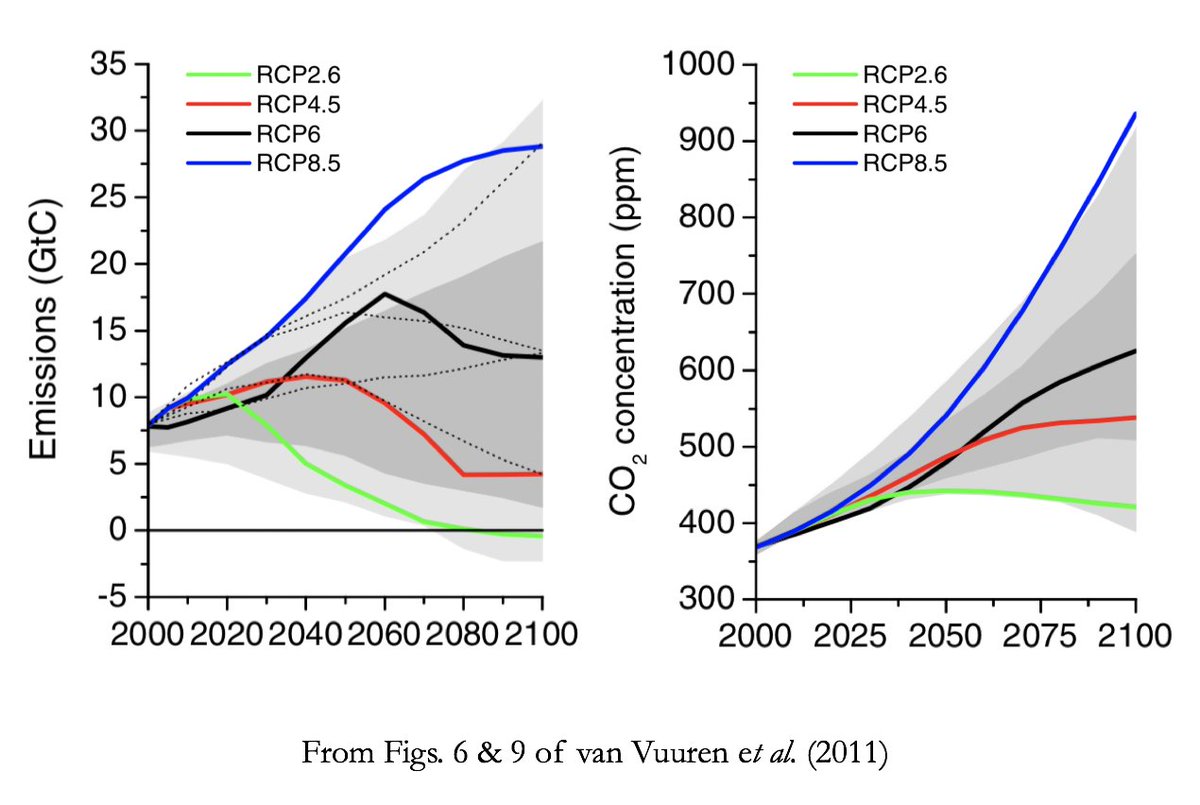
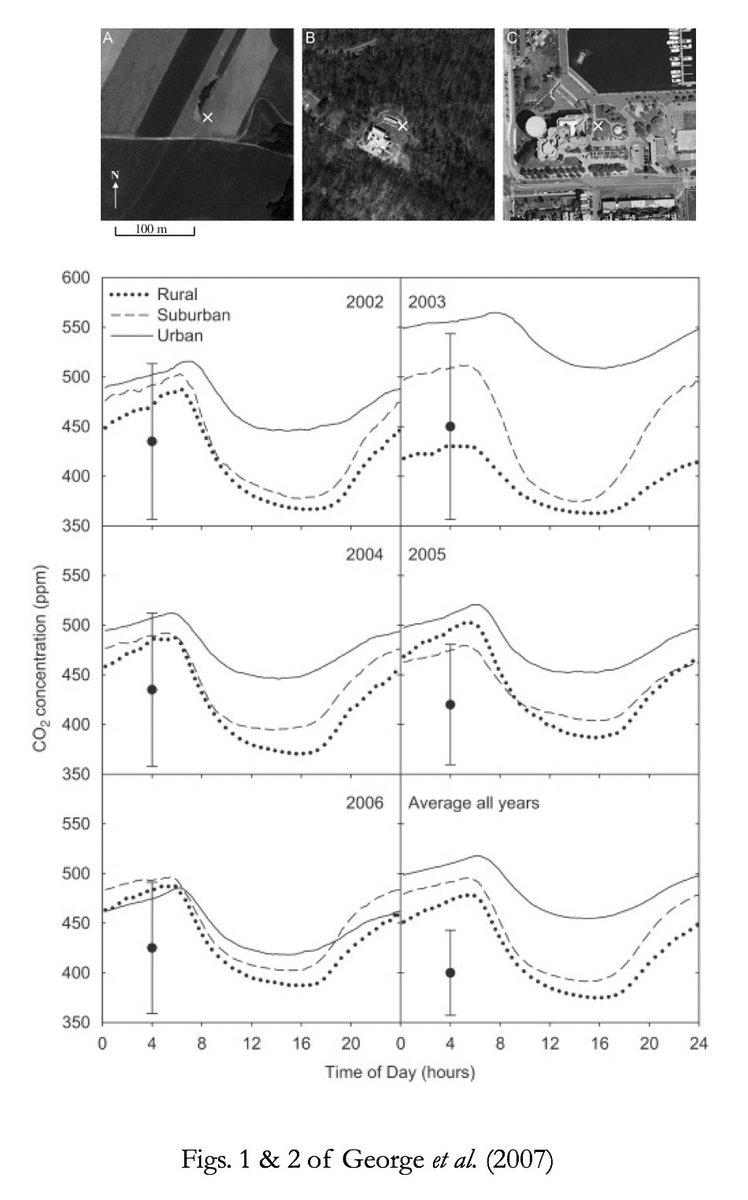
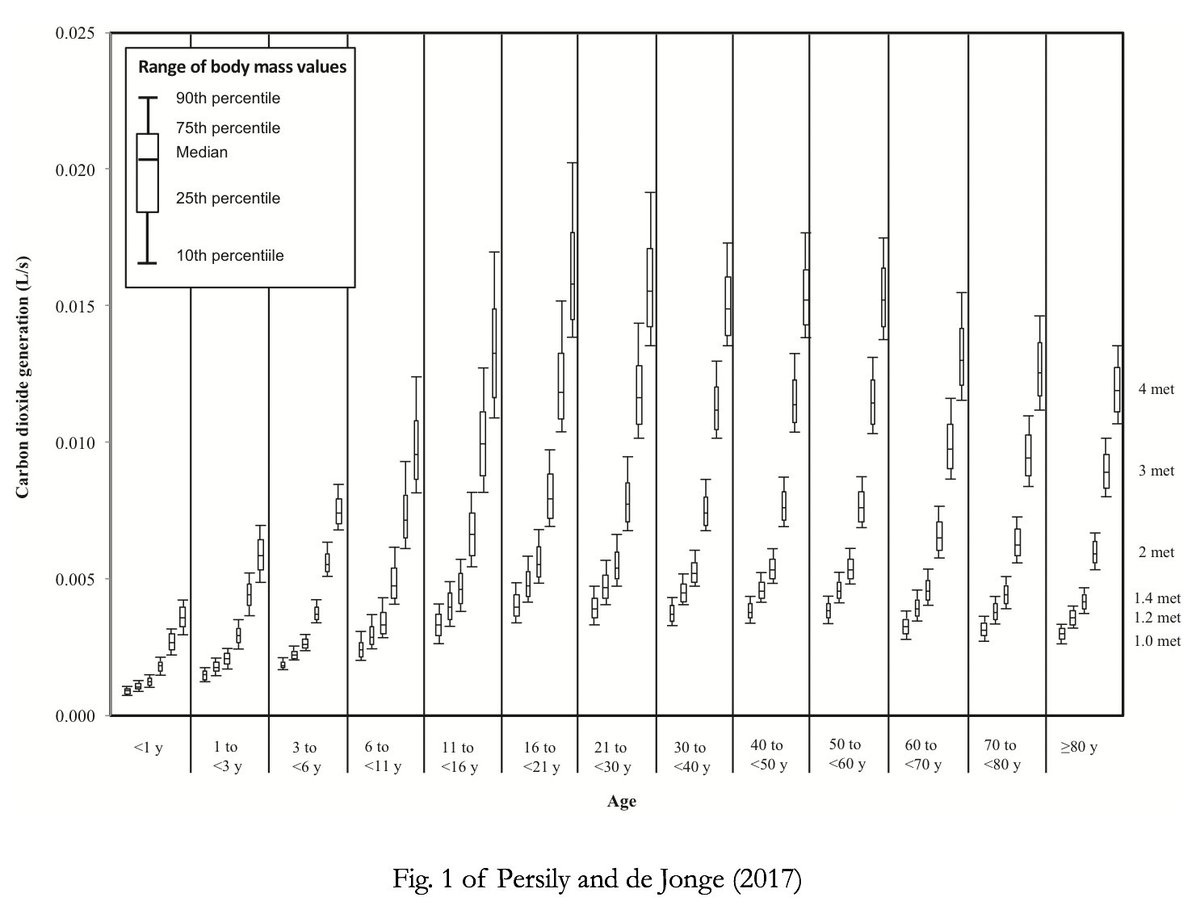

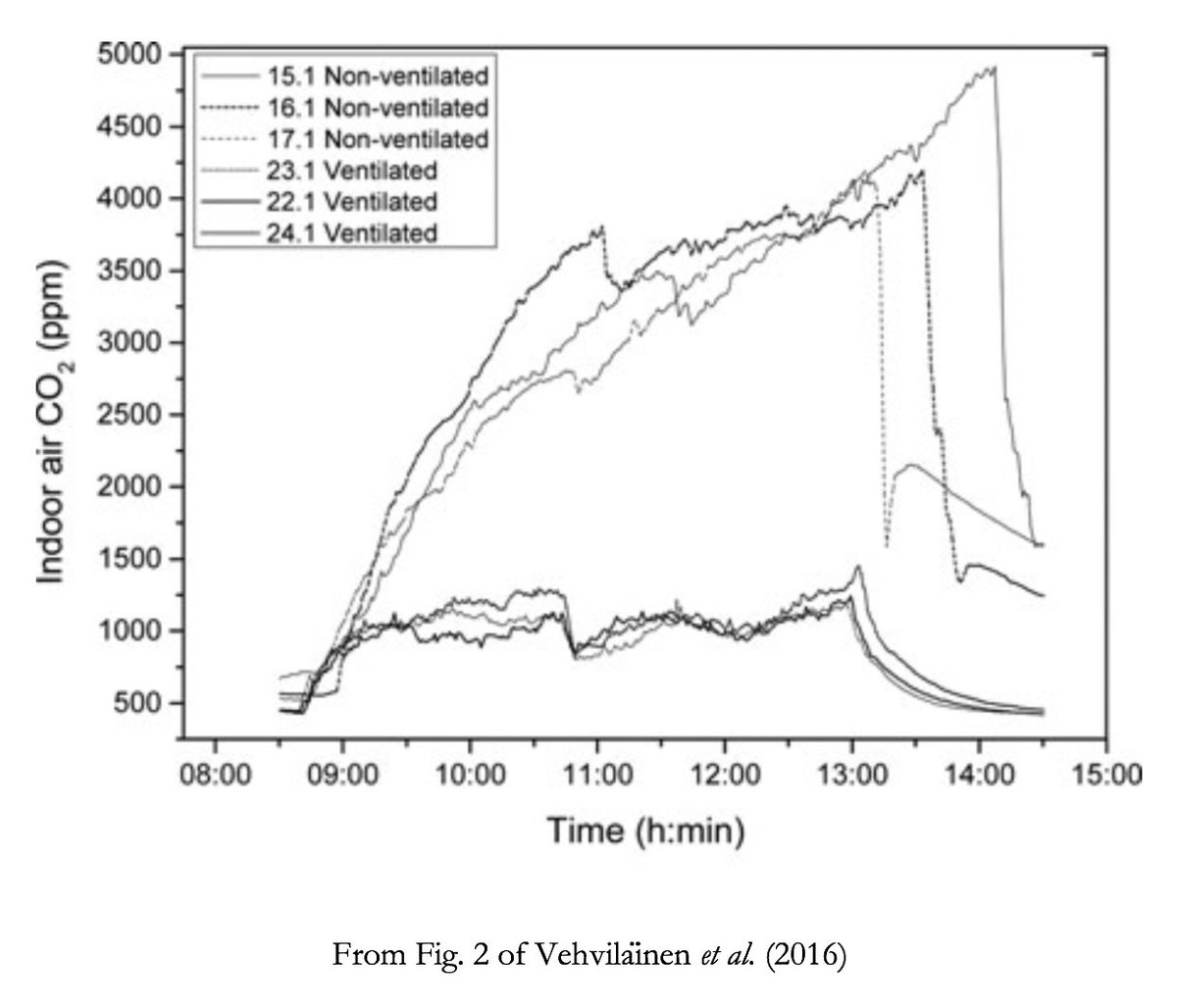
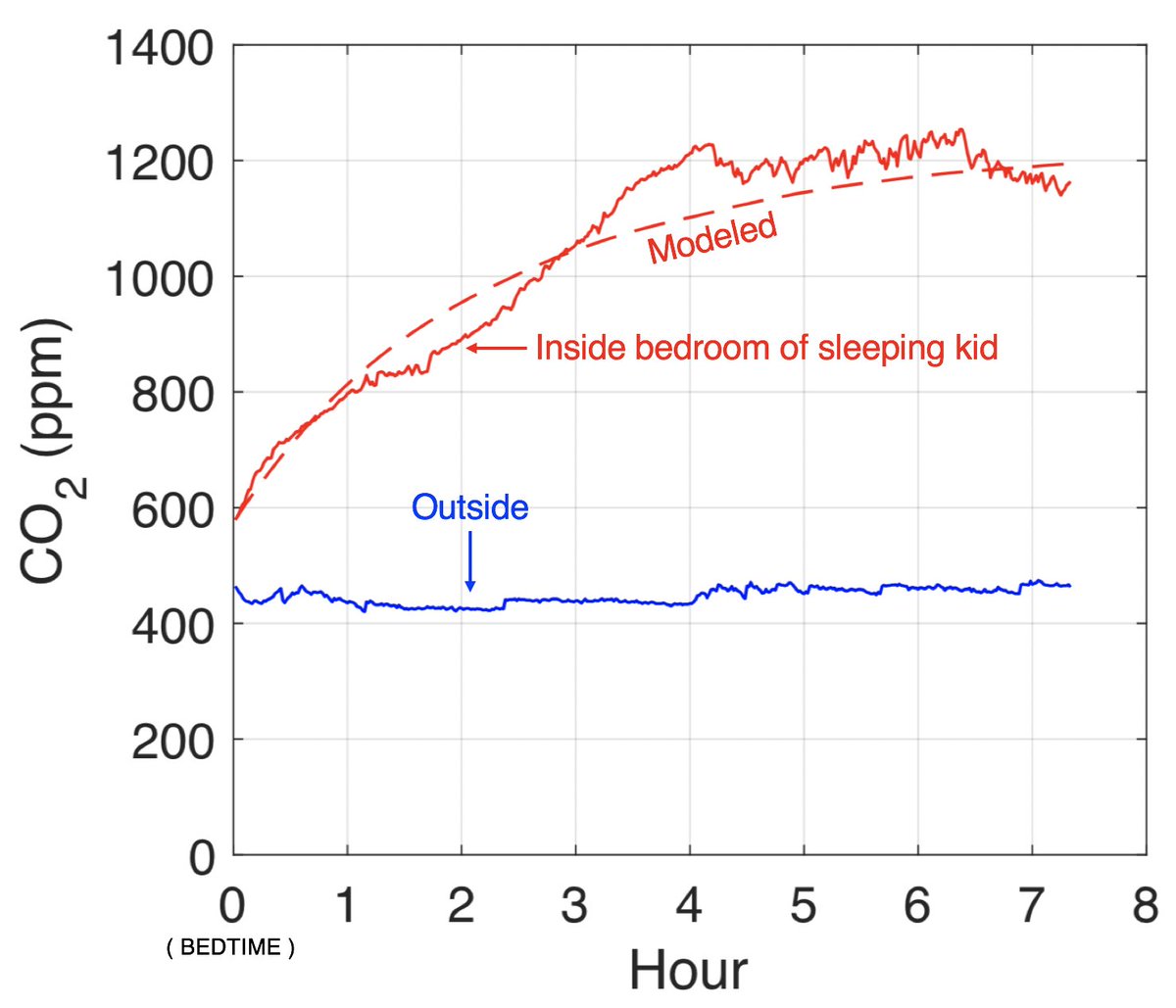
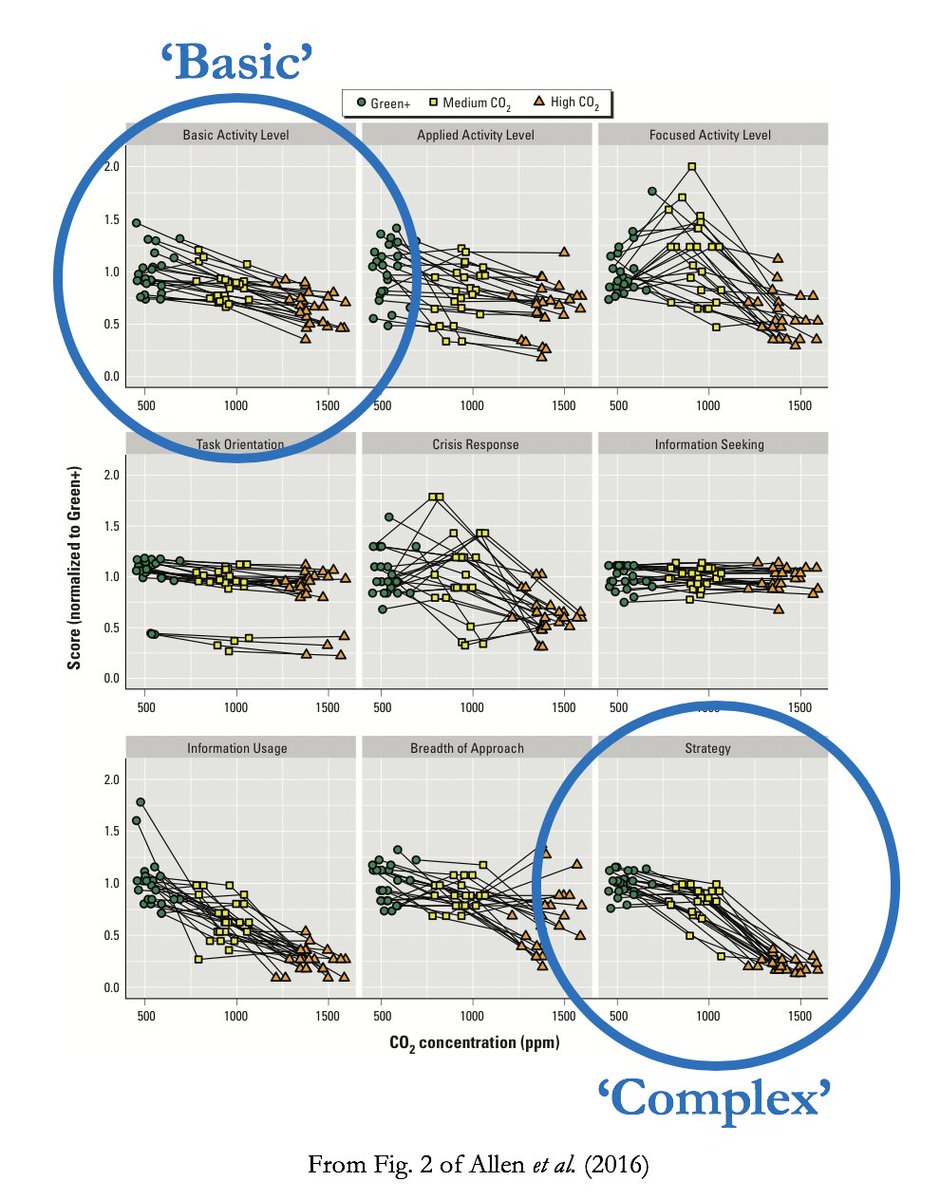
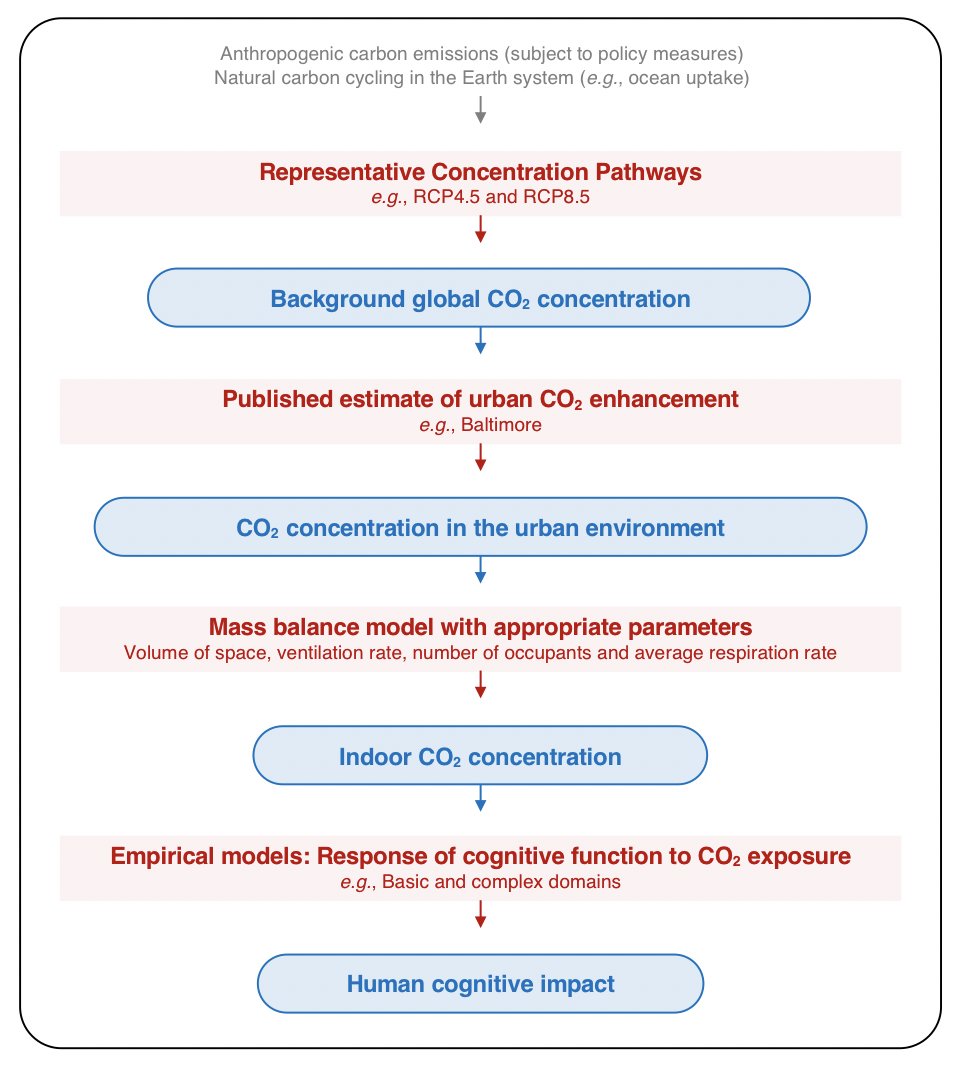
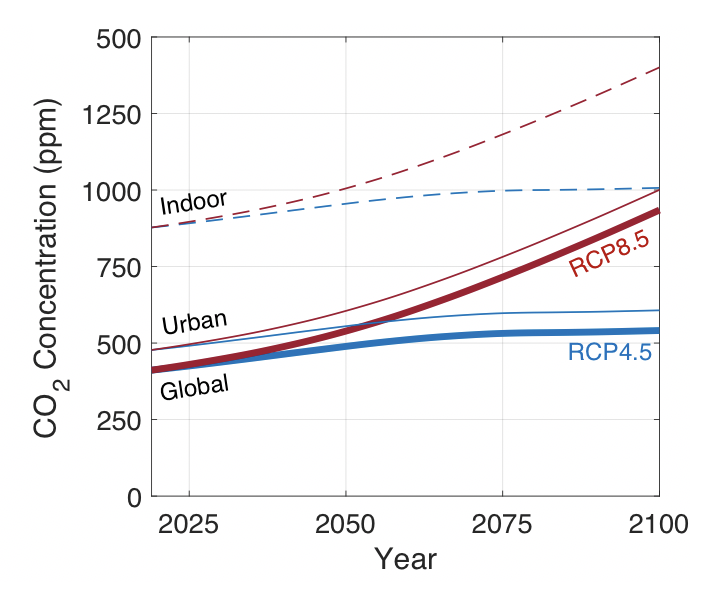
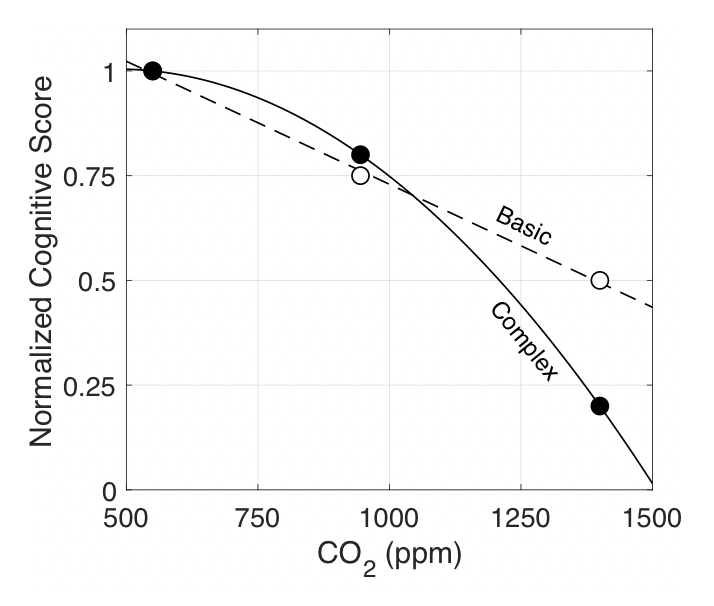 https://abs.twimg.com/emoji/v2/... draggable="false" alt="👇" title="Down pointing backhand index" aria-label="Emoji: Down pointing backhand index"> empirical models of cognitive score as a function of CO2. Look familiar? They’re approximations of the data from @j_g_allen et al. for the two categories circled a few tweets ago in this thread." title="Still with me?Next, we pass those future indoor CO2 time series through these https://abs.twimg.com/emoji/v2/... draggable="false" alt="👇" title="Down pointing backhand index" aria-label="Emoji: Down pointing backhand index">https://abs.twimg.com/emoji/v2/... draggable="false" alt="👇" title="Down pointing backhand index" aria-label="Emoji: Down pointing backhand index"> empirical models of cognitive score as a function of CO2. Look familiar? They’re approximations of the data from @j_g_allen et al. for the two categories circled a few tweets ago in this thread." class="img-responsive" style="max-width:100%;"/>
https://abs.twimg.com/emoji/v2/... draggable="false" alt="👇" title="Down pointing backhand index" aria-label="Emoji: Down pointing backhand index"> empirical models of cognitive score as a function of CO2. Look familiar? They’re approximations of the data from @j_g_allen et al. for the two categories circled a few tweets ago in this thread." title="Still with me?Next, we pass those future indoor CO2 time series through these https://abs.twimg.com/emoji/v2/... draggable="false" alt="👇" title="Down pointing backhand index" aria-label="Emoji: Down pointing backhand index">https://abs.twimg.com/emoji/v2/... draggable="false" alt="👇" title="Down pointing backhand index" aria-label="Emoji: Down pointing backhand index"> empirical models of cognitive score as a function of CO2. Look familiar? They’re approximations of the data from @j_g_allen et al. for the two categories circled a few tweets ago in this thread." class="img-responsive" style="max-width:100%;"/>
